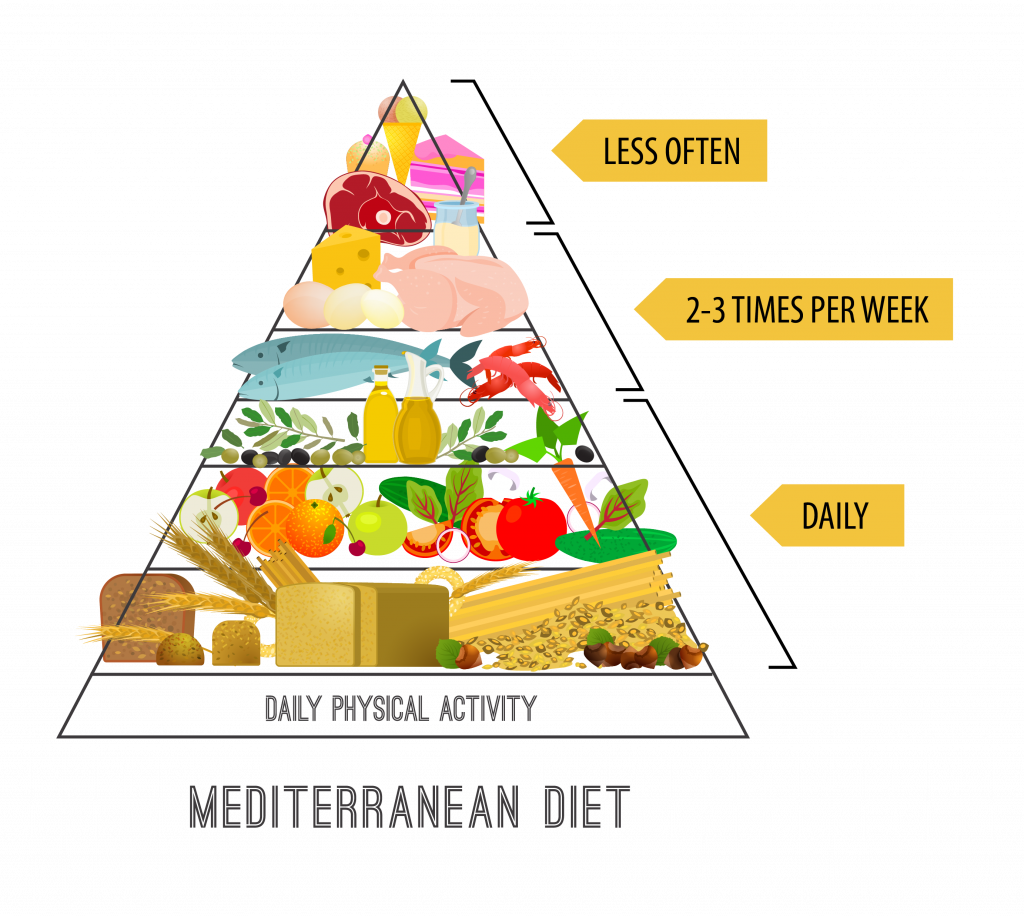A Healthy Diet
The Mediterranean diet is based on the typical diet that people ate in countries like Italy and Greece back in 1960.
Researchers discovered that these people were exceptionally healthy compared with people from countries such as USA, Britain and Australia, and that they had a low risk of many diseases such as cancer and heart disease.
Many studies have now shown that the Mediterranean diet can cause weight loss and help prevent heart attacks, strokes, type 2 diabetes and premature death, especially when combined with regular exercise.
There is no one “right” way to do this diet. There are many countries around the Mediterranean sea and they don’t all eat the same things. They do however, follow some general principles: avoid Ultra-Processed Foods, try to eat a large variety of plant based foods/week, ‘eat the rainbow’ (include as many different colours of food in your diet/week), and eat wholegrains.
We are offering these principles as opposed to a strict diet. The Mediterranean lifestyle also involves regular physical activity, sharing meals with other people and enjoying life!
The Mediterranean Diet Food Pyramid:

Enjoy the following:
- Fruit + vegetables
- Legumes
- Fish + seafood
- Tuna
- Salmon
- Trout
- Mackerel
- Eggs + poultry
- Dairy
- Cheese
- Greek /natural yoghurt
- Milk
- Minimal red meat
- Whole grains
- Wholemeal + sourdough bread
- Brown rice
- Quinoa
- Whole grain cereals
- Whole grain pasta
- Flavour with herbs + spices
- Decrease added salt
- Healthy fats (unsaturated)
- Olive oil (can be butter substitute)
- Nuts
- Avocado
- Red wine in moderation is okay
- 150 ml/day women (and men over 65)
- 300 ml/day men under 65
- Home cooking (less added sugar/salt/ etc.)
- Regular physical activity
- Shared meals, not in front of television
- Fresh produce, not fried
- Eat seasonal produce
Avoid these foods:
- Added sugar: Soft drinks, lollies, ice cream, table sugar and many others.
- Refined grains: White bread, pasta made with refined wheat, white rice etc.
- Trans fats: Found in margarine and various processed foods.
- Refined Oils: Soybean oil, canola oil, cottonseed oil and others.
- Processed meat: Processed sausages, hams, etc.
- Ultra Processed Foods: Everything labelled “low-fat” or “diet” or looks like it was made in a factory. Check the ingredients list – if there is something in the list that you wouldn’t find in your pantry, it is very likely UPF.
